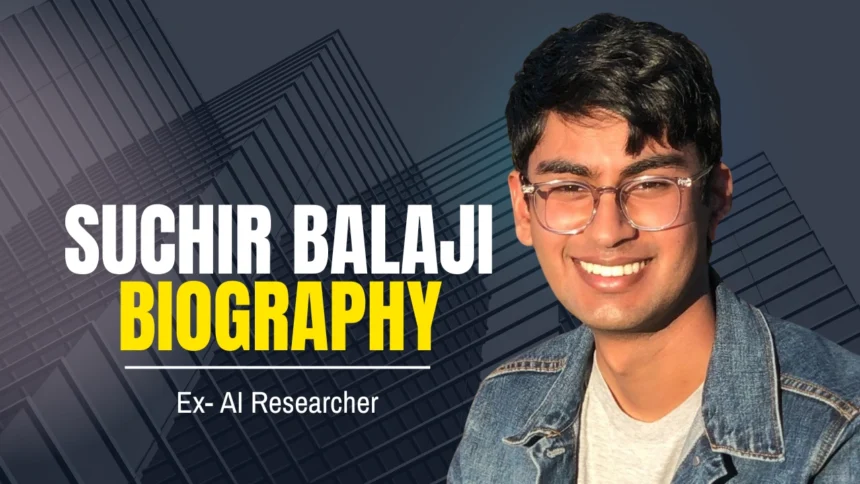Suchir Balaji was a young, brilliant mind in field of Artificial Intelligence (AI). Born and raised in Cupertino, California, Balaji made a significant mark in tech industry before his untimely demise in 2024. At just 26 years old, he had already achieved commendable milestones, from his education at UC Berkeley to his impactful contributions at OpenAI. This article delves into details of his life, career, and legacy, while exploring ethical challenges he courageously addressed within AI industry.
Education
Suchir Balaji’s passion for technology began early in his life. Growing up in Cupertino, a hub for innovation, he was drawn to computers and problem-solving from a young age. His academic excellence earned him a place at prestigious University of California, Berkeley, where he pursued a degree in computer science.
At Berkeley, Balaji specialized in machine learning and artificial intelligence, honing his skills through rigorous coursework and practical exposure. He interned at top AI organizations, including OpenAI and Scale AI, gaining invaluable experience. These internships allowed him to collaborate with leading experts in field, further fueling his interest in AI and its applications.
Career at OpenAI
After graduating from UC Berkeley, Suchir Balaji joined OpenAI full-time, one of most renowned organizations in artificial intelligence research. His tenure at OpenAI was marked by remarkable contributions to groundbreaking projects.
Key Contributions at OpenAI
- WebGPT
Balaji’s initial project at OpenAI was WebGPT, aimed at improving AI’s ability to retrieve and present accurate information from internet. This project laid foundation for enhancing credibility and reliability of AI-generated content. - GPT-4 Development
Balaji later became a pivotal member of pretraining team for GPT-4, one of most advanced AI language models ever developed. His expertise in fine-tuning and optimizing AI systems played a significant role in GPT-4’s success. - Reasoning Team and Post-training Efforts
Balaji contributed to reasoning team, focusing on improving AI’s decision-making capabilities. Projects like “o1” showcased his ability to enhance logic and interpretative skills of AI systems. He also worked on refining ChatGPT through post-training processes, ensuring its responsiveness and accuracy.
Ethical Advocacy in AI
Beyond his technical contributions, Suchir Balaji became a prominent voice for ethical accountability in tech world. His concerns revolved around data practices used to train AI models, particularly at OpenAI.
Copyright Concerns
Balaji raised alarm about OpenAI’s use of copyrighted materials—such as articles, books, and code—for training its AI models without obtaining explicit permission. He argued that this practice undermined intellectual property rights of creators and could potentially harm industries reliant on original content.
His criticisms highlighted a growing concern within AI community: balance between innovation and ethical responsibility. Balaji’s willingness to speak out, even in face of institutional challenges, positioned him as a key advocate for fairness and transparency in AI development.
Death of Suchir Balaji
On November 26, 2024, tech world was shocked to learn of Suchir Balaji’s sudden death. He was found deceased in his San Francisco apartment after friends requested a welfare check. San Francisco Police Department found no signs of foul play, and Medical Examiner’s Office later confirmed his death as a suicide.
timing of his passing added a layer of complexity to his story. It occurred just one day after his name appeared in a court filing related to a high-profile copyright lawsuit against OpenAI. While he was not directly implicated, association brought intense scrutiny, which some believe may have contributed to his emotional struggles.
Balaji’s death shed light on immense pressure faced by young professionals in high-stakes world of technology, particularly those who advocate for ethical reforms.
Legacy of Suchir Balaji
Despite his short life, Suchir Balaji left an indelible mark on field of AI. His contributions to projects like GPT-4 and WebGPT demonstrated his technical brilliance, while his advocacy for ethical accountability showcased his moral courage. Balaji’s legacy serves as a reminder of importance of balancing innovation with integrity.
Key Details About Suchir Balaji
| Attribute | Details |
| Full Name | Suchir Balaji |
| Birthplace | Cupertino, California, USA |
| Age at Death | 26 years |
| Education | Bachelor of Science, Computer Science (UC Berkeley) |
| Profession | AI Researcher |
| Key Roles | WebGPT, GPT-4 Pretraining Team, ChatGPT Post-training |
| Ethical Focus | Advocacy against misuse of copyrighted materials for AI training |
| Date of Death | November 26, 2024 |
| Cause of Death | Suicide (as per official reports) |
Conclusion
Suchir Balaji’s story is one of brilliance, courage, and tragedy. His contributions to AI research and his unwavering commitment to ethical principles have left a lasting impact on tech industry. As field of AI continues to evolve, Balaji’s advocacy for fairness and accountability will remain relevant, inspiring future generations to prioritize integrity alongside innovation.
Balaji’s life, though short, was a testament to power of young minds in shaping future. His legacy reminds us that journey of innovation must be guided by a strong moral compass to ensure a fair and inclusive technological landscape.
Disclaimer
This article is based on publicly available information and sources deemed reliable. It is intended for informational purposes only. Readers are encouraged to verify details independently. authors and publishers are not responsible for any inaccuracies or misinterpretations.



